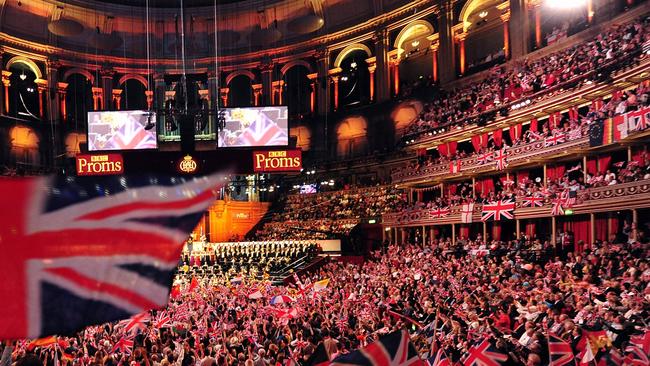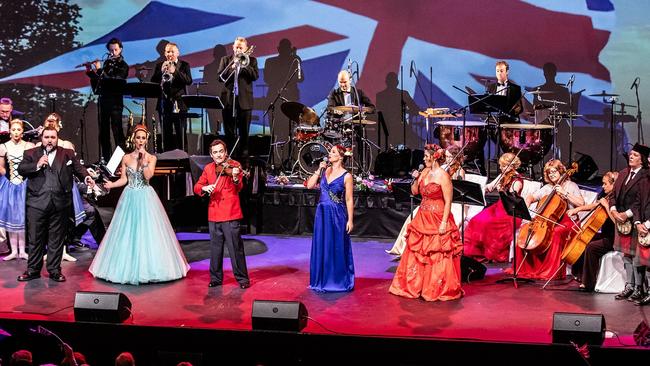BBC bans Rule Britannia and Land of Hope and Glory from Last Night of the Proms
Debate over the pandemic has been replaced with patriotism in the UK as two of the nation’s most loved songs are axed from the Proms. But is the ban just jumping at shadows?

Opinion
Don't miss out on the headlines from Opinion. Followed categories will be added to My News.
- UK’s education system is the stuff of a Little Britain skit
- Secret to surviving the UK’s COVID summer
A drug dealer stole my car park this week, forcing me into an awkward, opposite-side-of-the-road parallel reverse stop.
Now, whether my accusation would pass the burden of proof in a criminal court may be shaky, but I think it would get across the line in a civil court on the balance of probabilities.
The case for the prosecution is that a modern black Toyota Prius with a sticker on its front window that appeared to be for Uber stopped at the wide car park on my side of the road that I was about to pull into.
A man jumped in, spoke to the driver for a minute, then got on the phone, but the car didn’t leave.

I waited, and a minute or so later, the guy got out of the car and walked away and the Prius left.
In the meantime I had done an Austin Powers seven-point turn to get into the car park, going right hand down. It was annoying. I waited for the Prius to move but it sat there for what seemed like an eternity.
And if you think that I’m seeing things, or being paranoid, now you know how most of the UK feels about the other major debate this week.
The BBC has decided that two patriotic songs, Rule Britannia, and Land of Hope and Glory, will not be sung at Last Night of the Proms this year because of their alleged links to slavery.
The Proms is a summer tradition in the UK, in which the Royal Albert Hall in Kensington, central London, holds an eight week classical music festival.
Some of the tickets are only $20 and it has been running for 125 years.
But the BBC bosses in their wisdom, and after the Black Lives Matters protests in the United States sparked similar demonstrations here, thought they should no longer sing the patriotic songs.
In Rule Britannia, written in The Dove pub in Hammersmith, the line that was meant to have caused offence is that the English would never be slaves.
MORE NEWS:
Tony Abbott set to join Boris Johnson’s Brexit trade team
Meghan Markle blasted for hypocrisy
Prince Charles’ heartfelt message to Victorians in COVID-19 lockdown

The Land of Hope and Glory, famously sung by Dame Vera Lynn, was ruled out because it promoted Britain’s empire expansion plans.
The decision has sparked widespread anger, and a musical protest. Land of Hope and Glory has rocked to the top of the iTunes chart.
It’s the biggest musical demonstration since Rage Against The Machine’s Killing in the Name topped the charts in 2009, 17 years after it was released, when Brits wanted to stop X-Factor singer Joe McElderry reaching the Christmas number one single.
At the very least, the burden of proof on whether the songs were racist lands in the civil court jurisdiction, rather than beyond reasonable doubt.
But like me with the drug dealing Uber driver, they may just be jumping at shadows.

